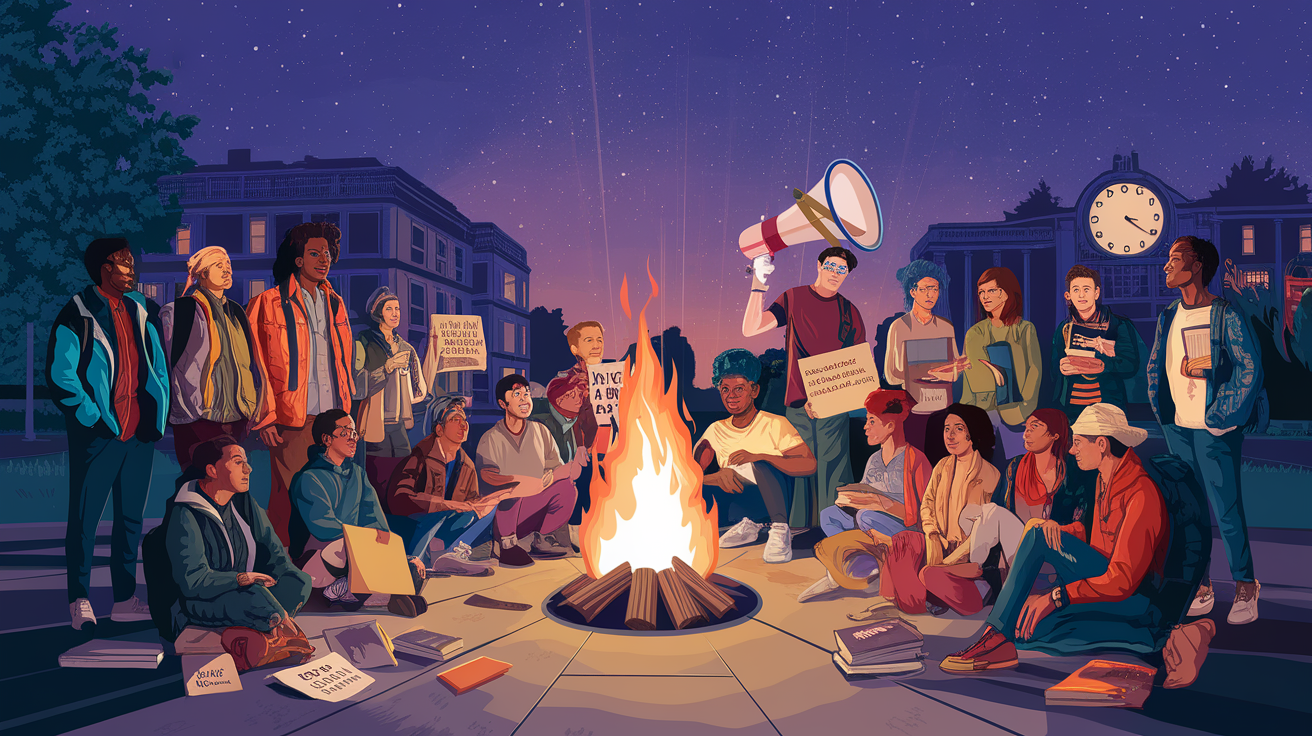"Midnight Madness: Texas Students Fight Back Against Campus Speech Ban"
Texas Shoutouts™
Archives
"Midnight Madness: Texas Students Fight Back Against Campus Speech Ban"
SIGN UP FOR OUR NEWSLETTER
|
|

Dottie Lane
Sep 6, 2025
In the bustling halls of the University of Texas at Dallas, students like Sarah Thompson and Mike Rivera are not just hitting the books. They are taking on a giant: the entire University of Texas System.
These young voices, along with peers from UT Austin and other campuses, have filed bold lawsuits against Senate Bill 2972.
This new Texas law bans "expressive activities" on public university grounds from 10 p.m. to 8 a.m. But what does that really mean?
Critics say it could silence everything from a late-night study group chatting about politics to a quiet religious meeting under the stars.
Picture this: It's a warm evening on campus. Sarah, a junior studying journalism, wants to join friends for an outdoor discussion about climate change. But under the new rule, that simple gathering might be against the law after 10 p.m.
Mike, a history major at UT Austin, remembers past protests that sparked real change, like those for civil rights. Now, he worries this bill clips the wings of free expression, turning vibrant campuses into quiet zones overnight.
The lawsuit, filed in federal court, claims the law is too vague and broad. Lawyers for the students argue it violates the First Amendment, which protects free speech.
They point out that even harmless activities, like a poetry reading or a candlelight vigil, could get shut down.
"This isn't just about protests," Sarah told reporters. "It's about our right to gather and share ideas anytime, without fear."
On the flip side, supporters of the bill, including some university officials, say it's needed to keep order. They argue that late-night events can lead to disruptions, safety issues, or even violence, especially after high-profile campus clashes in recent years.
This fight echoes bigger national debates. Remember the heated protests over issues like gun control or racial justice? Universities across the U.S. are grappling with how to balance safety and free speech.
In Texas, Governor Greg Abbott signed SB 2972 into law amid concerns about unruly demonstrations. But opponents, backed by groups like the American Civil Liberties Union, warn it sets a dangerous precedent.
Could this spread to other states, quieting student voices everywhere?
As the case heads to court, it raises a burning question: Should universities have the power to limit free speech during certain hours to maintain peace, or does that cross the line into censorship?
On one hand, quiet nights might mean safer campuses and better focus on studies. On the other, it could stifle the very debates that shape young minds and drive social change.
Experts in constitutional law, like Professor Elena Ramirez from Harvard, note that similar rules have been struck down before for being too sweeping. Drawing from years of covering education policy, it's clear this lawsuit could redefine campus life.
For now, Sarah and Mike are rallying support, hosting daytime events to spread the word. Their story is a reminder that free speech isn't just words on paper; it's the heartbeat of democracy.
As the judge weighs in, thousands of students wait to see if their voices will echo into the night or fade into silence. |
